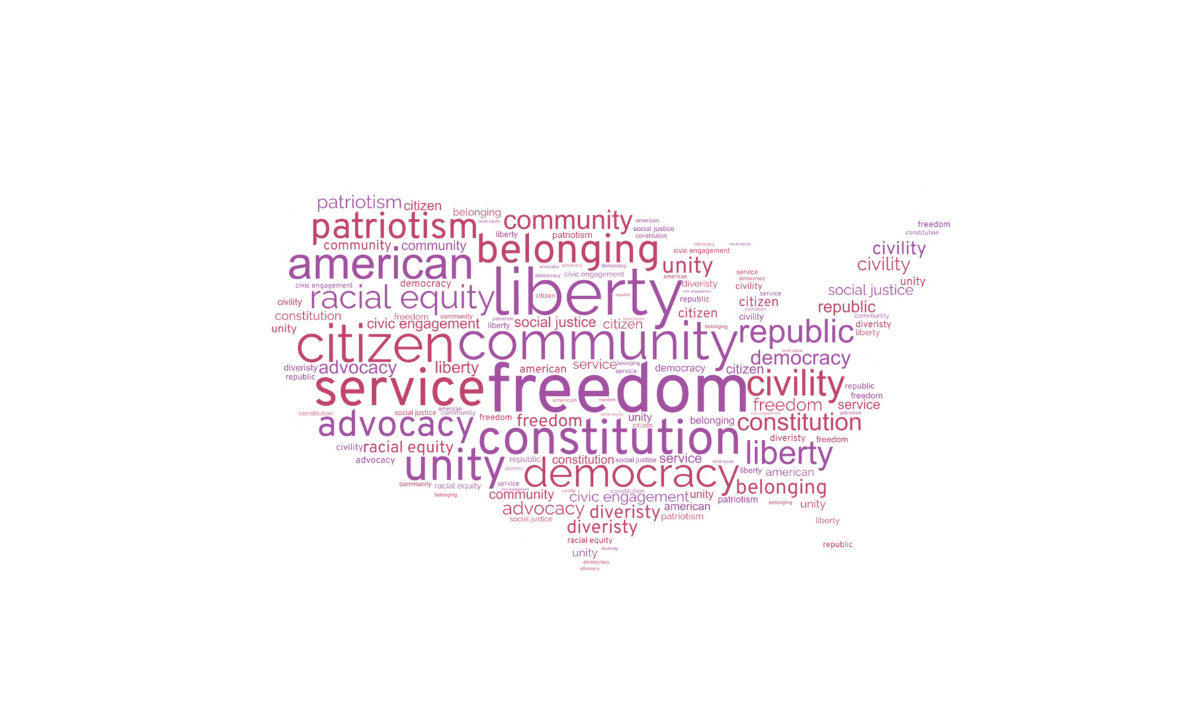Is Silence Violence? How Yale Law School Reminded Me of the Virtue of Viewpoint Neutrality
Prohuman Foundation advisor Alexandra Hudson, writing in the Washington Speakers Bureau Blog, examines the risks of institutional activism. She makes a case for viewpoint neutrality as a way to encourage honest dialogue and respect in public life.
Institutional activism, while motivated by good intentions, ultimately harms the social fabric by fostering division, distracting from core missions, and undermining democratic discourse. By embracing neutrality, institutions can contribute more effectively to the common good, uniting diverse voices and preserving the integrity of civil society.
Learning From Trump
Prohuman Foundation Advisor Kent Lenci, in a commentary for Real Clear Politics, muses about the lessons he would draw from President Trump (and critics) for his former middle school civics class. He envisions turning hot-buttons into lessons on government, media, and respectful dialogue, redirecting controversy into curiosity and civic engagement.
It’s never too late to dig deeply, to learn joyfully, and to be curious about those with whom you disagree. A seventh grader can do it. So can you.
The Best Educational Reform We’re Completely Ignoring
Kevin Stinehart, in his Substack, argues that unstructured play at school is the overlooked key to enhancing children’s focus, emotional health, and academic growth, using real stories and research to show the power of play. He urges parents and educators to reclaim recess as a simple, cost-effective solution to nurture healthier, more connected kids.
Since the early 2000s, recess has been steadily reduced in schools across the U.S. in favor of more class time. It’s well-meaning, but counterproductive. Because what we’re losing isn’t just downtime. We’re losing the place kids grow, develop, and make their minds fertile soil for the academic goals we have for them.
Guidance on how language can unintentionally drive people away
Zachary Elwood, in his own Defusing American Anger Substack, explores how polarized language fuels conflict and offers a "depolarization dictionary" to help people communicate with clarity and empathy. He shares practical tools and insights to reduce unintended alienation.
Over the past few years, I’ve occasionally added to a “depolarization dictionary” of mine. It’s meant to give guidance on specific terms that I think are often unnecessarily driving people away. For example, an activist might talk about common sense, not realizing why that can rub people the wrong way. Or a journalist might write about misinformation, unaware of how that term has liberal-leaning connotations. Or someone in the bridge-building/depolarization space might write a piece about the importance of moderation, unaware of the different interpretations of that word and how it may bother some politically passionate people.
Japan: The language of the izakayas
Katherine Brodsky, in her Substack, Random Minds, recounts visiting several of Japan’s izakayas, richly and humorously detailing the conversations that she found herself a part of with locals. She captures the warmth and spontaneity of these spaces, showing how they turn strangers into friends over shared food, drinks, and laughter.
Meet Katherine Brodsky:
The Prohuman Book Club will meet on Thursday, May. 29 with author Katherine Brodsky to discuss her book “No Apologies: How to Find and Free Your Voice in the Age of Outrage.” The book profiles courageous thinkers and dissenters in the arts, education, journalism, and science who offer inspiration and practical lessons for the ‘silenced majority.’ Join us—bring your questions and engage Katherine directly.
Opinions expressed in selected articles do not necessarily reflect those of the Prohuman Foundation. We value diverse perspectives that enrich our understanding of topics close to our mission: to promote the foundational truth that we are all unique individuals, united by our shared humanity.










viewpoint neutrality - (mutual respect) sounds a lot like Harmony - an attitude of a willingness to seek pleasing blendings and balancings. But the word Harmony Is not used once in the speech.
I do not agree that institutions should not be activist. They just need to be activist for a Harmonious Republic, for an attitude of a willingness to seek common solutions, for common concerns, for the common good.